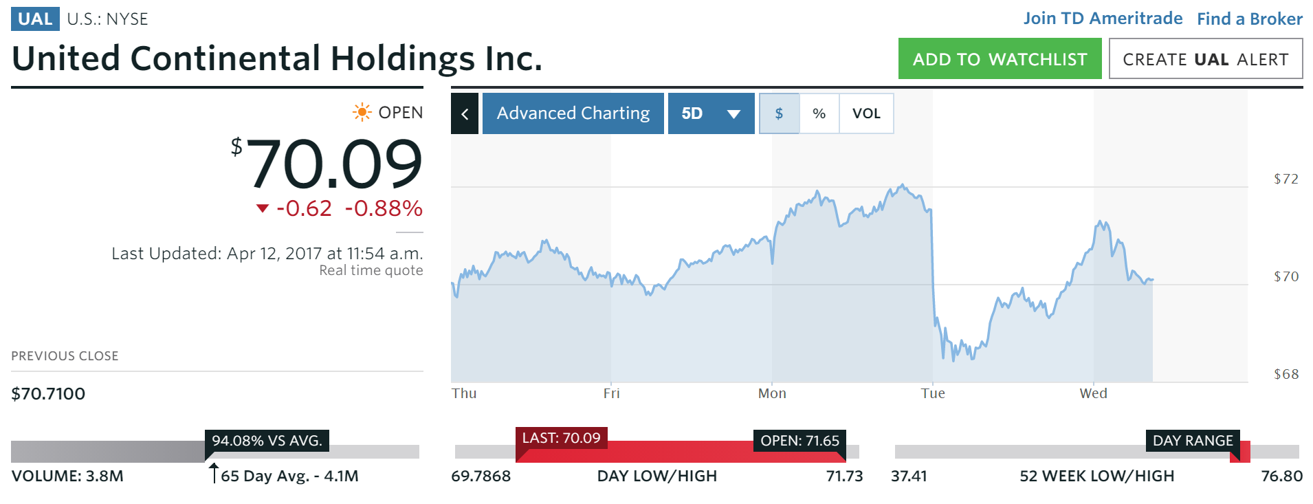Social media sentiment can predict the stock market.
This is not an assertion or a hypothesis. There have been research studies around the world, including a recent one by Indiana University Bloomington using Twitter data to predict the stock market. Behavioural finance researchers can now apply computational methods to large-scale social media data to better understand and predict markets.
In the world of big data and unstructured data such as social data, we found a strong correlation on the impact of public sentiment to the share price of a company. Below depicts how social media conversation about a series of viral events and announcements that took place in 2016 impacted the share price of a well-known carrier.

This underlines the importance of understanding how public sentiment influences the investor sentiment; ultimately influencing the net value of a corporation. How a corporation views online human interaction and the thought processes that go into it will directly determine how its stocks performs.
Firstly, let us look at how we think as humans. Humans are emotional beasts. Almost 90% of our purchasing decisions are dictated or influenced by our emotion; i.e. how do we feel about the product? How often do we purchase based on logical thinking? A good example would be the purchase of a pair of jeans – rarely do we really think logically on the technical specifications and its benefits associated with the processes or material technology that was used to make the said pair jeans. We rely on the perception of whether we would look good wearing it. And this perception relies on what others think about the product as well. The premise of emotional decision that influences the purchases above also fuels the herd mentality associated with bulk selling of stocks in the stock market.
Perception being the new reality is the next point that we need to highlight. In the age of information overload and decreasing attention span, we take less time to analyse the truth about the headlines we stumbled across on our social media channels. The subliminal effect of mind conditioning and the repetitive marketing efforts caused by these headlines bring substantial
influence as to how we act as consumers. What we perceive colours our decisions and in most cases, overrides our logical thinking processes. While these headlines might not influence investors directly, none the less they do effect brand perception and ultimately investors’ confidence in the brand.
Thirdly, due to the advanced algorithms inherent in search engines, the application of algorithm to dictate what we view or read on our social media timeline means consumers are trapped in their own social media “bubbles”. The effect of the “bubbles” mean consumers viewpoint as will be restricted by the algorithm that feeds only social posts or advertisements related to one’s historical interest or recent social media engagement activities (eg: what you have Liked and which page did you last commented on). We are only shown what the algorithm thinks we want to see. Therefore, events or news that we see may cause knee-jerk-reaction in the stock market; causing premature alarms that can send shivers to other retail investors who are actively connected in the digital world.
Our analysts have discovered a myriad of events and conversational triggers in our social data that has direct and indirect impact on the stock market. Whilst many would argue that correlation is not a causation, our experience suggests that many of these social media sentiment, if analysed accurately can bring greater benefits by analysing the cause-and-effect relationship to effective investor relation campaigns and other communication strategies.




